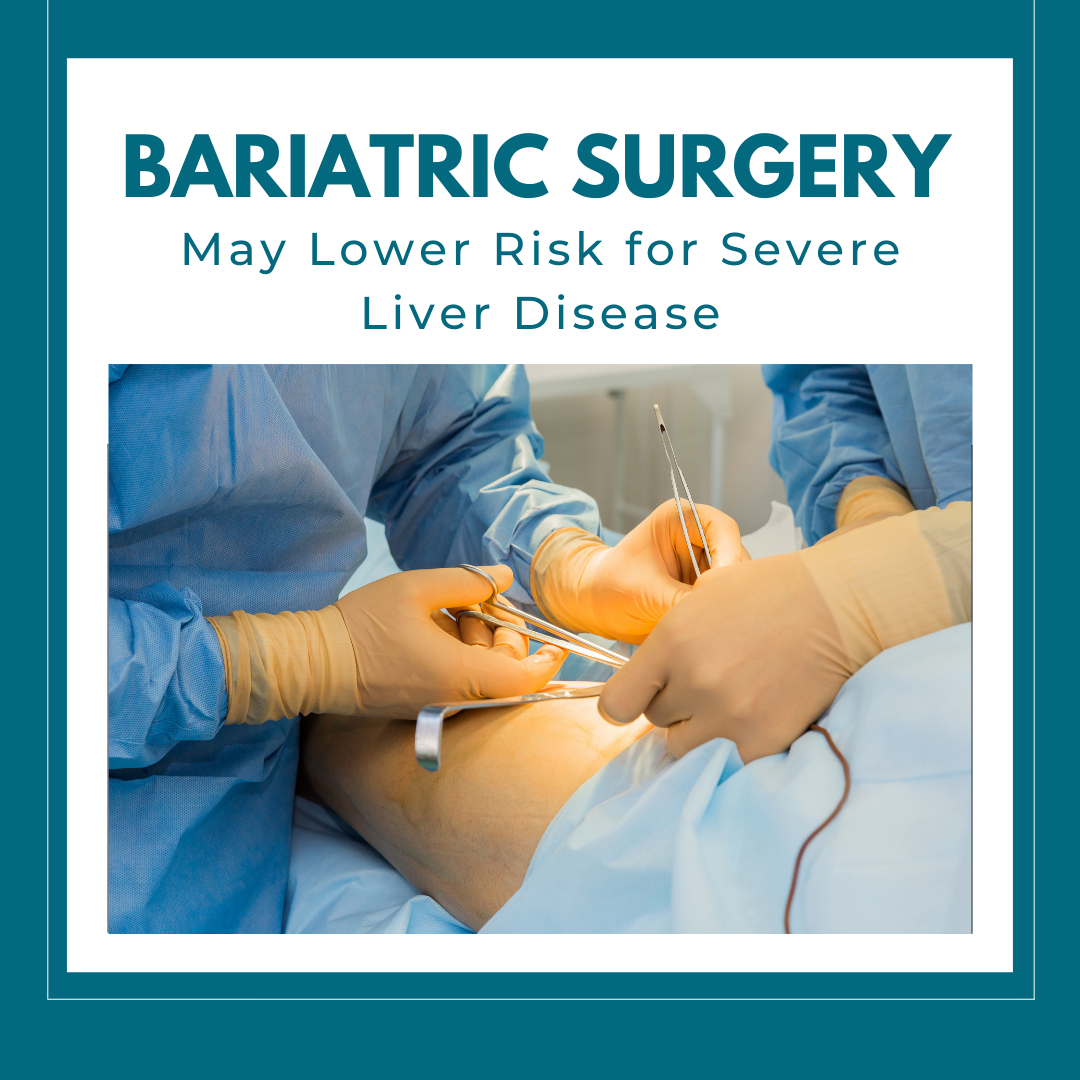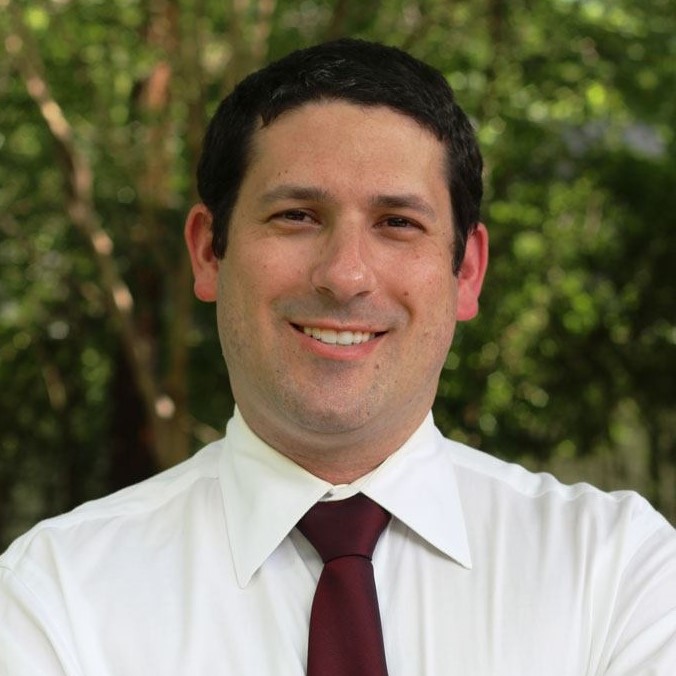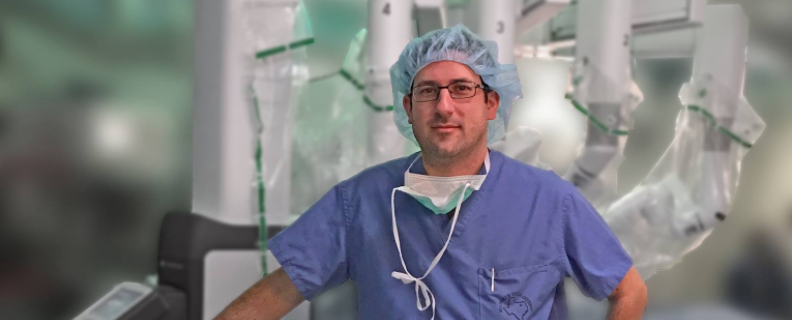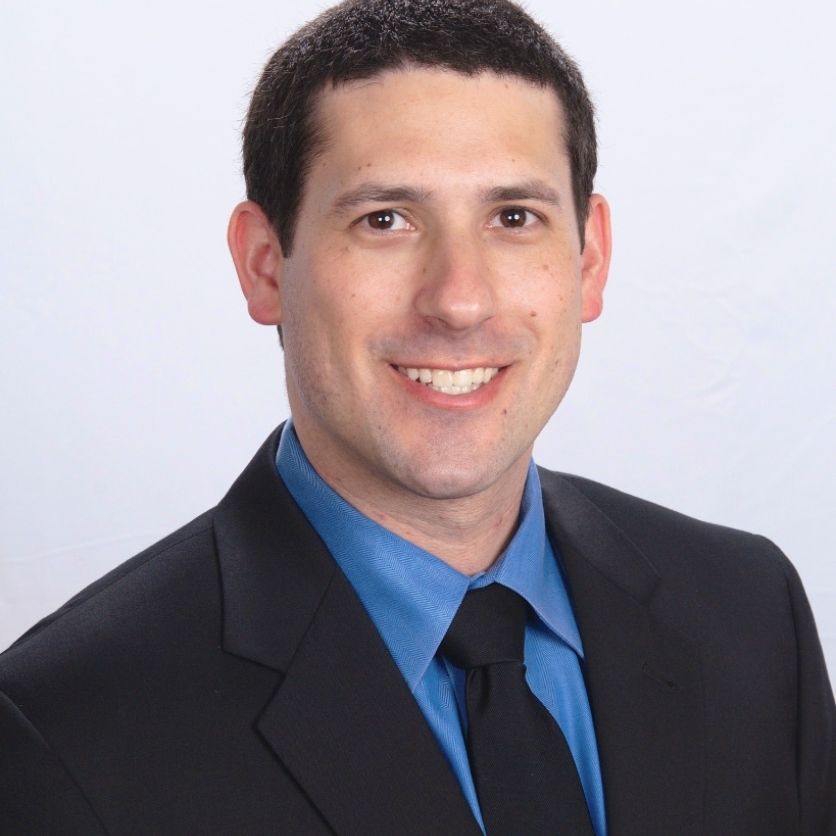

Dr. Michael Sutker, MD
Surgeon
7777 Forest Ln Suite A 331 Dallas TX, 75230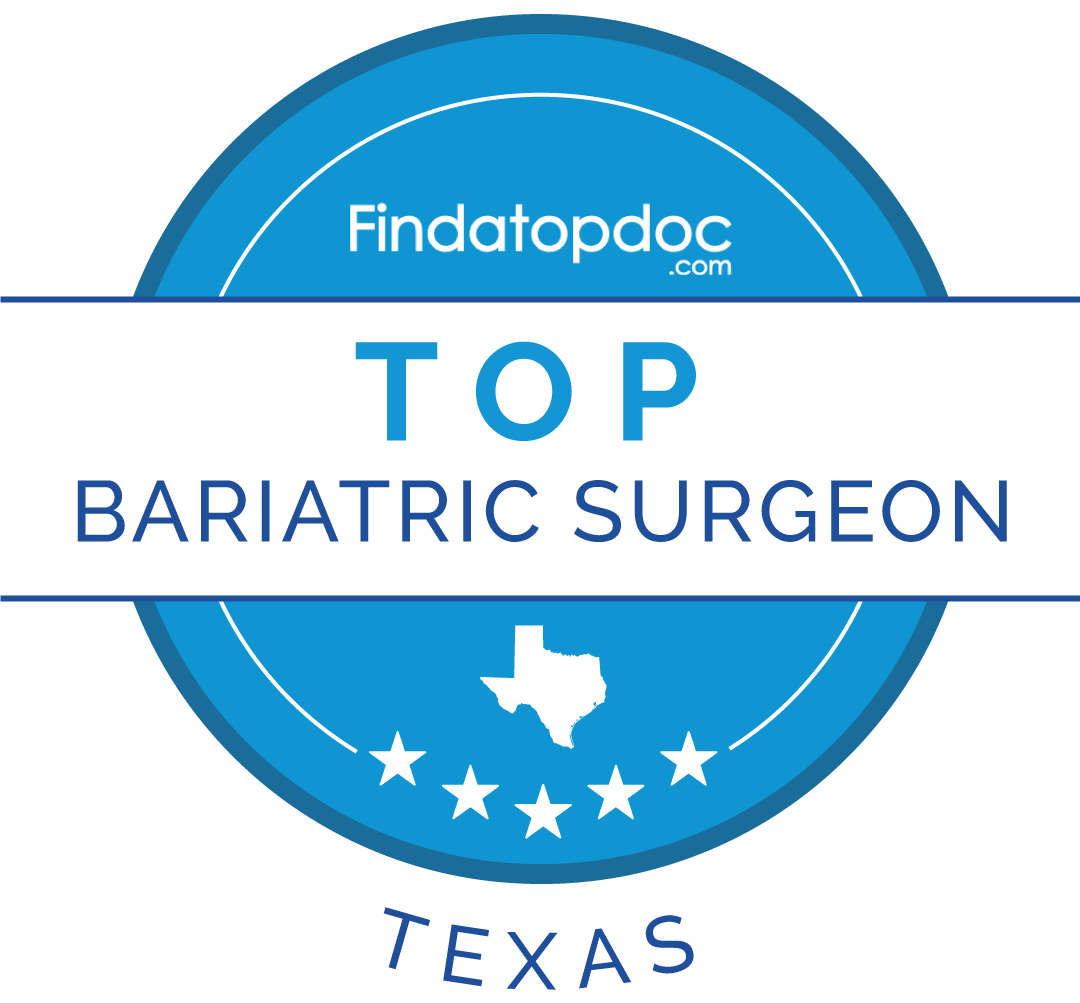
About
Dr. Sutker has been in practice at Medical City Dallas since 2014 and at Medical City McKinney since 2019. He is board-certified in general surgery. Dr. Sutker manages a wide range of surgical diseases. He specializes in treating conditions with minimally invasive techniques utilizing both standard laparoscopy and robotic-assisted laparoscopy. Dr. Sutker has specialty training in the surgical treatment of obesity, acid reflux, esophageal motility disorders, and paraesophageal hernias. He is skilled in the repair of abdominal wall defects, including inguinal, umbilical, ventral, and incisional hernias. Dr. Sutker also enjoys managing emergency surgical situations including gallbladder disease, appendicitis, and diverticulitis.
Dr. Michael Sutker, MD's Videos
Education and Training
MD at the University of Texas Southwestern Medical Center
Board Certification
American Board of Surgery
Provider Details

Dr. Michael Sutker, MD's Expert Contributions
Tips For Weight Loss - By Dr. Michael Sutker
Tip 1 - Do Not Eat After 8 PMMy Recommendation - Many patients consume unnecessary calories late in the day prior to bed. Some patients suffer from Night Eating Disorder. Cutting out these calories can help with weight loss.Tip 2 - Avoid Beverages With CaloriesMy Recommendation - Beverages with...
What Makes Dr. Sutker Stand Out?
Dr. Michael Sutker is the Medical Director of Robotic Surgery and the Chair of the Advanced Clinical Advisory Board at Medical City Dallas Hospital, where he’s been practicing since 2014. There, he is also a member of the General Surgery Performance Improvement and Intensive Care Unit...
Meet Michael Sutker, MD: Dallas's General & Bariatric Surgeon
Dr. Michael Sutker is the Medical Director of Robotic Surgery and the Chair of the Advanced Clinical Advisory Board at Medical City Dallas Hospital, where he’s been practicing since 2014. There, he is also a member of the General Surgery Performance Improvement and Intensive Care Unit...
Minimally Invasive Hernia Repair
Hernias are extremely common, especially in the abdominal area, and could also be present and undetected at birth. They occur when tissue pushes through a muscle’s weak spot.For qualifying patients, minimally invasive hernia repair is a great alternative to more invasive, open hernia repair. The...
Understanding Bariatric Surgery: FAQs
The decision to undergo bariatric surgery is not an easy one.Thinking about undergoing bariatric surgery or know someone who is? Here are some FAQs that might help.When is someone eligible for bariatric surgery?Since there are no two overweight people that are exactly the same, there is no general...
What are the risks of a tracheostomy?
In the short-term after the procedure, there is a risk that the tracheostomy can pop out before the tract has time to develop. Many times, it requires a return to the operating room to replace. In the long-term, there is a small risk of erosion into the major blood vessels in the neck and upper chest, although I have never seen this happen in my experience. A tracheostomy makes it difficult to swallow, and many times a feeding tube is also required to allow for adequate nutrition. READ MORE
Is surgery the only way to remove gallstones?
The amount and size of gallstones is not a trigger for me to operate or not operate. Your symptoms related to your gallstones are the trigger to operate sooner or later. Typical symptoms include right upper quadrant pain that occurs after meals (especially fatty, greasy, and oily foods), nausea, vomiting, and bloating. If these symptoms come and go, surgery can typically be done in an elective planned fashion. If these symptoms are persistent and last longer than 6 hours at a time, surgery needs to be performed more urgently, and frequently on an emergency basis. Once you have gallstones, they do not go away. There is a medication called cholestyramine that can dissolve gallstones. This medication causes bloating, nausea, and constipation, which for many patients, is worse than their gallbladder symptoms. Furthermore, once you stop the cholestyramine, the stones will typically recur. Surgery is the only definitive treatment. It is typically done via a minimally invasive (laparoscopic) fashion as an outpatient. Patients are sore for about 1-2 weeks and return to full activities and diet within 4-6 weeks. Patients who are working can usually return to work in 3-10 business days. READ MORE
How should I choose a surgeon and hospital?
Ensure that you are surgeon is board-certified in their specialty. Ensure that the hospital is accredited by JCAHO. That should be a minimum criteria for choosing a physician and a facility. Also ensure that both the surgeon and the hospital are in your insurance network unless you are willing to pay cash or out-of-network fees. READ MORE
Sex and surgery
It depends on the kind of surgery you are having. A good rule is when you feel up to performing any kind of strenuous activity, whether that be sex, jogging, or weight lifting, you should be able to return to that activity. If you don't feel up to it, then don't do it. Talk to your surgeon about any limitations specifically related to your procedure. READ MORE
How soon before my heart surgery should I stop smoking?
It is recommended that you stop smoking at least 4-6 weeks before any surgery. In addition to the chronic problems that smoking causes (lung disease, heart disease, etc), smoking severely impairs wound healing and puts you at risk for complications like wound breakdown or wound infections. The longer you stop before surgery, the better for you. READ MORE
What risk factors are associated with an abdominal surgery?
That's a very broad question based on several factors. 1. Is your surgery being performed via an open approach with a large incision or via a laparoscopic (minimally invasive approach) with smaller incisions? 2. Where is the mass located? Depending on if it involves your GI tract, your urinary tract, or the soft tissue can certainly affect the risks. In general, the risks of any surgery including pain, bleeding, infections (wound, urinary tract infections, pneumonia), and scarring. Scarring inside of the abdominal cavity can put you at risk of intestinal adhesions and obstructions in the future. Other risks include hernias at the site of the incision or injuries to intra-abdominal organs such as the colon or the small intestine. Rare complications include things such as blood clots in the legs or lungs (deep vein thrombosis [DVT] or pulmonary embolus [PE]), kidney failure, a heart attack, stroke, or death. The risks for these sort of complications depend on any underlying medical conditions that you may have, but typically range about 1-3 in 1000. READ MORE
Since I had my appendix removed, I haven't really had an appetite. Is this normal?
This is pretty typical. It may take 4-6 weeks for your appetite to return. Most patients will lose 5-10 lbs after surgery, but almost all gain it back. READ MORE
Hernia
Sexual function should not be affected by hernia surgery. Your activity should be limited by pain. If an activity, whether it be sexual intercourse or jogging or lifting, hurts, then you should avoid it until your pain goes away. Difficulties with ejaculation is not a side effect or complication of hernia surgery. Numbness around the incision and sometimes around the inner thigh or scrotum is typical. That loss of sensation improves in most, but not all, people. READ MORE
Gallstones
Symptoms from gallbladder disease tend to occur more frequently and more severely as time goes on. The classic symptoms are related to fatty, greasy, and oily foods, but over time, may occur with any kind of food or drink. I recommend that once you have symptoms related to gallstones that you have your gallbladder removed. Pain in the back may be related to your gallbladder disease. Sometimes the pain radiates from the gallbladder itself. It can also be sign that gallstones have migrated out of the gallbladder and into the ducts (or tubes) that drain the liver and pancreas. If your liver tests are abnormal and you continue to have back pain, talk to your surgeon about performing a cholangiogram, an X-ray of the ducts, to ensure no stones have left the gallbladder. I routinely perform cholangiograms on all my patients, but most surgeons only perform them on a selective basis. READ MORE
After surgery what can I do to get rid of the scars?
If you are having laparoscopic surgery, your incisions will all be about 1 cm or less in length (about the length of a fingernail). They tend to fade away over time and it many patients, are barely, if at all, noticeable. There are lots of over the counter skin care and scar products available, but to the best of my knowledge, none have been proven to be overly successful. That being said, none of them should hurt your scar and feel free to try any of them. READ MORE
How should I mentally prepare myself for surgery?
Surgeons perform surgeries routinely, but patients should never feel like surgery is routine. All surgery, even procedures considered minor, should be considered a big deal. Know that your team of care providers have all received years of education and training. Make sure the physicians and hospital have all the appropriate credentialing to be able to provide care to you safely. Anesthesia these days is extremely safe. I would not be concerned about anesthesia. if I had to be put to sleep or if any of my family members would be put to sleep. Know that surgery is never pain-free. The key is to identify an appropriate pain level that you will be able to tolerate. If your pain level is 0 and you are taking a lot of narcotics, you are probably taking too many and are at risk for an overdose. Pain is only temporary and it gets better over time. READ MORE
What does a hernia surgery involve? What is the usual recovery period from the surgery?
A hernia is a hole in the tissue layers of the abdominal wall. Depending on the location, size, and complexity of the hernia, it may be repaired via an open approach with a long incision or a minimally invasive approach via multiple small incisions. The repair involves reducing the hernia sac and its contents back in the abdomen and reinforcing the hole with a piece of mesh to prevent the hernia from recurring. Typical recovery from a minimally invasive approach is about 2-4 weeks, and an open approach is about 4-8 weeks. A lot of the recovery time depends on how many symptoms you have prior to surgery and the size of the hernia itself. The location of the hernia has a bearing as well- groin hernias tend to heal faster than hernias around the belly button. READ MORE
Is bariatric surgery painful?
Bariatric surgery is performed via a minimally invasive approach. While not pain-free, patients generally tolerate it very well. I typically will prescribe only 5-7 days of prescription pain medication after surgery; after that, most patients take tylenol alone for the pain. READ MORE
Does sex after surgery carry any risks?
I typically recommend no strenuous activity (sex, lifting more than 20 lbs, aggressive exercising) for about 2 weeks after surgery. Let pain be you and your husband's guide. If an activity causes pain or discomfort, you should avoid that activity until the symptoms go away. READ MORE
What are the chances that my stitches could get infected after a surgery?
There is always a small chance of a wound infection after bariatric surgery. The medical literature suggests that the rate is a little <1% for a sleeve gastrectomy and about 1.5% for a gastric bypass. Treatment typically includes removing sutures and allowing the wound to drain as well as oral antibiotics. READ MORE
I have been putting on weight around my abdomen after my bypass surgery. Why?
Every patient tends to gain a little weight back after surgery. The typical time period for weight loss is around 12-18 months. You may gain up to 30% of your weight back over time, but studies have shown that even out to 20 years, weight loss can be sustained after a gastric bypass. Your GI hormone regulation will change as time goes on. You will start to feel hungry again. You will not feel full as quickly. I recommend that all patients start by keeping a food journal. Make sure to track your calories and your protein intake. I recommend to all my patients that even after surgery when they have reached their goal weight, that they only consume 1000-1200 calories per day to maintain their weight. You should also be consuming at least 60 grams of protein per day. You may find that you are not adhering to these recommendations by eating too many calories by substituting carbohydrates for protein. The other simple way to start looking at your weight loss or weight regain is to see how much activity you are doing. People who exercise more tend to lose more weight and keep more weight off. I recommend at least 30 minutes per day of some activity. Some patients with weight regain may benefit from weight loss medications such as Phentermine, Belviq, or Qsymia. I would speak to your surgeon about this as an option. READ MORE
What are the side effects of bariatric surgery?
There are different complications depending on the type of surgery that you are having done. Most operations are restrictive, meaning they decrease the size of your stomach and restrict the amount of food you can eat at any given time. Your ability to eat a normal-sized meal will forever be altered. The operations are essentially irreversible. Other side effects, at least for the first 9-18 months, include a decreased appetite and early satiety (feeling full quickly). If you do not maintain a low-fat, low-sugar diet, you will be at risk for dumping syndrome, which is characterized by nausea, bloating, and diarrhea. Many people develop acid reflux after a sleeve gastrectomy, but this may improve over time. Nausea, vomiting, and bloating are all common effects, especially in the early phases after surgery. There are also specific risks of surgery related to each procedure that are not necessarily long-term side effects. READ MORE
How do I manage my husband's stomach disorders after his gall bladder surgery?
It depends on what his symptoms are. One of the most frequent problems after a cholecystectomy (gallbladder removal) is called post-cholecystectomy dumping. This typically occurs after eating a fatty and greasy meal. It leads to nausea, bloating, and diarrhea. It can be managed with dietary changes. Occasionally, a medication called cholestyramine may be prescribed to help bind the bile. READ MORE
Is acid reflux normal after gall bladder surgery?
It is not uncommon to have some bile reflux after surgery. I have also seen patients whose symptoms of acid reflux were masked by the severity of the gallbladder disease. Once their gallbladder was removed and they were no longer having pain, their reflux symptoms were much more noticeable. It could also be a completely separate problem. I would speak with your doctor about it. READ MORE
What is the recovery period for laparoscopic surgery?
Recovery from surgery largely depends on what the type of surgery it is, not necessarily that it is laparoscopic or not. Even though laparoscopic surgery is done through small incisions, a significant amount of work can be done inside of the abdomen. The incisions themselves are typically sore for about 2-4 weeks. In general recovery is much faster and easier than a traditional open operation. I would say that recovery can be anywhere from 10 days to 2 months depending on what is done. READ MORE
Expert Publications
Data provided by the National Library of MedicineAreas of expertise and specialization
Faculty Titles & Positions
- Medical Director of Robotic Surgery Medical City Dallas Hospital 2016 - 2016
- Chair of the Advanced Clinical Advisory Board Medical City Dallas Hospital - 2016
- Chief of Surgery Medical City Dallas Hospital 2022 - Present
- Trauma Medical Director Medical City Dallas Hospital 2021 - Present
- Section Chief of General Surgery Medical City Dallas Hospital 2019 - 2021
Awards
- Top10MD 2019 Top10MD
- Top10MD 2018 Top10MD
- Top10MD 2017 Top10MD
Professional Memberships
- Texas Association for Bariatric Surgery
- American Society for Metabolic and Bariatric Surgery
- Society of American Gastrointestinal and Endoscopic Surgeons
- American College of Surgeons
- American Medical Association
- Obesity Medicine Association
Fellowships
- UC-San Francisco
Fellowships
- Minimally Invasive and Bariatric Surgery, University of Texas Southwestern Medical Center
Professional Society Memberships
- Society of American Gastrointestinal and Endoscopic Surgeons, American College of Surgeons, Texas Medical Association, Dallas County Medical Society
What do you attribute your success to?
Good training and availability
Hobbies / Sports
- Spending Time With Family
Dr. Michael Sutker, MD's Practice location
Michael Sutker, M.D., P.A.
7777 Forest Ln Suite A 331 -Dallas, TX 75230Get Direction
Michael Sutker, MD, PA
4510 Medical Center Drive 302 -McKinney, TX 75069Get Direction
Dr. Michael Sutker, MD's reviews
Write ReviewPatient Experience with Dr. Sutker
- Monica
Doctor Sutker was great and explained everything really well.
- Michael
Absolutely great!
- Ernest bore n
Great
- Morgan
I came in through the Er so had no prior experience with the Dr. He has been very attentive, caring and helpful with all of my questions and concerns.
- Casey
Dr. Sutker is so attentive. He provides exceptional support!
Amazing doctor and staff!
- Michael
Excellent bedside manners. Excellent care
- Dorothy
Great Doctor very professional
- Ronda
He saved my life! What's a better review than that.?
- Dorothy
Excellent care. Excellent bedside manners
- Robert
Helpful
- Nighat
He did good Job
- Damon
Excellent doctor . Kind and understanding. Gave great advice to help my problem.
- Robert
He was fantastic.
- Ana
Excellent
- Carol
Dr. Sutker was very knowledgeable, kind, professional and considerate. He made me feel relaxed and that he cared for me and my anxiety and that I was a person not a number.
- Elliot
I found dr sutker to be very professional but still personable. He answered all of my questions truthfully.
Great :)
- Abba
A bit of a wait but worth it. I felt the doctor really listened and addressed my concerns. Also knowledgeble.
- Phyllis
Good care. Talked me and answered all my questions.
+ Show More
Media Releases
Get to know General Surgeon Dr. Michael Jason Sutker, who serves patients in Texas.
Dr. Sutker is a board-certified general surgeon who specializes in treating general surgery conditions with minimally invasive techniques, mostly utilizing robotic-assisted laparoscopy. He opened his practice, Michael Sutker, M.D., P.A., at Medical City Dallas in 2014 where he is the Medical Director of the Robotic Surgery Program & Section Chief for General Surgery.
At the beginning of 2019, he started a second office at Medical City McKinney to bring his skills and expertise to that area. Dr. Sutker is also a part of the Surgical Consultants of Dallas, LLC, and he maintains close ties with associate surgeons, including Dr. Sue Jiang, Dr. Christopher Bell, and Dr. Dina Madni.
A Plano, Texas native who graduated from the University of Texas at Austin, Dr. Sutker earned his medical degree from the University of Texas Southwestern Medical School in Dallas. He then went on to complete his general surgical internship and residency at the same educational venue. He received additional fellowship training in minimal invasive and bariatric surgery at the University of California, San Francisco Medical Center.
Skilled in the repair of abdominal wall defects, the doctor is board-certified in general surgery by the American Board of Surgery, an independent, non-profit organization located in Philadelphia, Pennsylvania, founded for the purpose of certifying surgeons who have met a defined standard of education, training, and knowledge.
In addition, he is board-certified in obesity surgery by the American Board of Obesity Medicine, which is a 501 nonprofit, self-appointed physician-evaluation organization that certifies physicians practicing obesity medicine.
Attributing his success to good training and availability, he has received specialty training in the surgical treatment of obesity, gastro-esophageal reflux disease, esophageal motility disorders, paraesophageal hernias, and inguinal and ventral hernias. He also has an extensive practice in emergency general surgery, managing problems such as appendicitis, cholecystitis, diverticulitis, and small bowel obstructions.
Remaining at the forefront of his challenging specialty via memberships with professional organizations, Dr. Sutker is a member of the American College of Surgeons (Fellow), the Society of American Gastrointestinal and Endoscopic Surgeons, the American Medical Association, the Texas Medical Association, the Texas Association for Bariatric Surgery, the American Society for Metabolic and Bariatric Surgery (Fellow), the Dallas County Medical Society, and the Obesity Medicine Association.
He maintains the highest levels of accreditation and pursues ongoing education to stay abreast of the latest trends in the medical field. He also participates in regular continuing medical education and attends local and national conferences to stay abreast of new research and surgical techniques.
General surgery is a surgical specialty that focuses on abdominal contents including the esophagus, stomach, small bowel, colon, liver, pancreas, gallbladder, appendix and bile ducts, and often the thyroid gland. A general surgeon performs a wide range of abdominal surgeries for many forms of intestinal and abdominal wall neoplasms, gallbladder disease, gastric and pancreatic disease. They follow the patient through critical care and surgical recovery all the way to outpatient care.
Among his numerous accolades, Dr. Sutker is the recipient of Patients’ Choice Award (2015, 2016, 2017, 2018), On-Time Doctor Award (2015, 2016, 2017, 2018), and Compassionate Doctor Recognition (2015, 2017).
Outside of practicing medicine, he enjoys spending time with family.
Recommended Articles
- What Are The Side Effects Of Bariatric Surgery?
Bariatric surgery is also referred to as weight loss surgery. In other cases, it is known as gastric bypass surgery. It is an operation performed mostly on obese people. The main purpose for this type of surgery is to reduce weight.Bariatric surgery involves the removal of certain portions of your...
- What to Expect After a Biopsy
Biopsies may vary differently depending on the type and location of the tissues and how hard are they to obtain. The medical term used to describe such method is “invasiveness.” A less invasive procedure will, for example, take place in a doctor’s office the same day an abnormal tissue is...
- Appendectomy Aftercare
What is an Appendectomy?The appendix is a pouch-like organ situated in the lower right abdomen in the first part of the large intestine. The importance or function that is carried out by this structure is not very clear, hence it is referred to as a "vestigial structure". When the appendix causes...
- What to Expect After a Cholecystectomy
In case you have problems with your gallbladder and there is a need for it to be removed, you will experience unusual and uncomfortable symptoms while trying to adapt to a new life without a gallbladder. Obviously, when your gallbladder is removed, bile can't be stored like before since it is meant...
- Can Males Get Circumcised At Any Age?
Circumcision is the surgical removal of the foreskin on a male’s penis. It is a controversial issue that has been the subject of much discussion and research. Religious and societal beliefs about the necessity and benefits of the procedure vary in different regions of the world. Another...
- What is the Central Venous Catheter?
The central venous catheter is a type of a catheter that is normally placed in a vein of large size. It is also called the central venous line or central line. Central venous catheters can be fitted in veins found in the chest, groin, arms, and neck. This type of catheter is often used in the...
Nearest Hospitals
TEXAS HEALTH PRESBYTERIAN HOSPITAL DALLASl
8200 WALNUT HILL LANE DALLAS TX 75231MEDICAL CITY DALLAS HOSPITALl
7777 FOREST LANE DALLAS TX 75230WALNUT HILL MEDICAL CENTERl
7502 GREENVILLE AVENUE DALLAS TX 75231TEXAS HEALTH PRESBYTERIAN HOSPITAL ALLENl
1105 CENTRAL EXPRESSWAY NORTH ALLEN TX 75013METHODIST MCKINNEY HOSPITALl
8000 W ELDORADO PKWY MCKINNEY TX 75070BAYLOR SCOTT AND WHITE MEDICAL CENTER MCKINNEYl
5252 WEST UNIVERSITY DRIVE MC KINNEY TX 75071